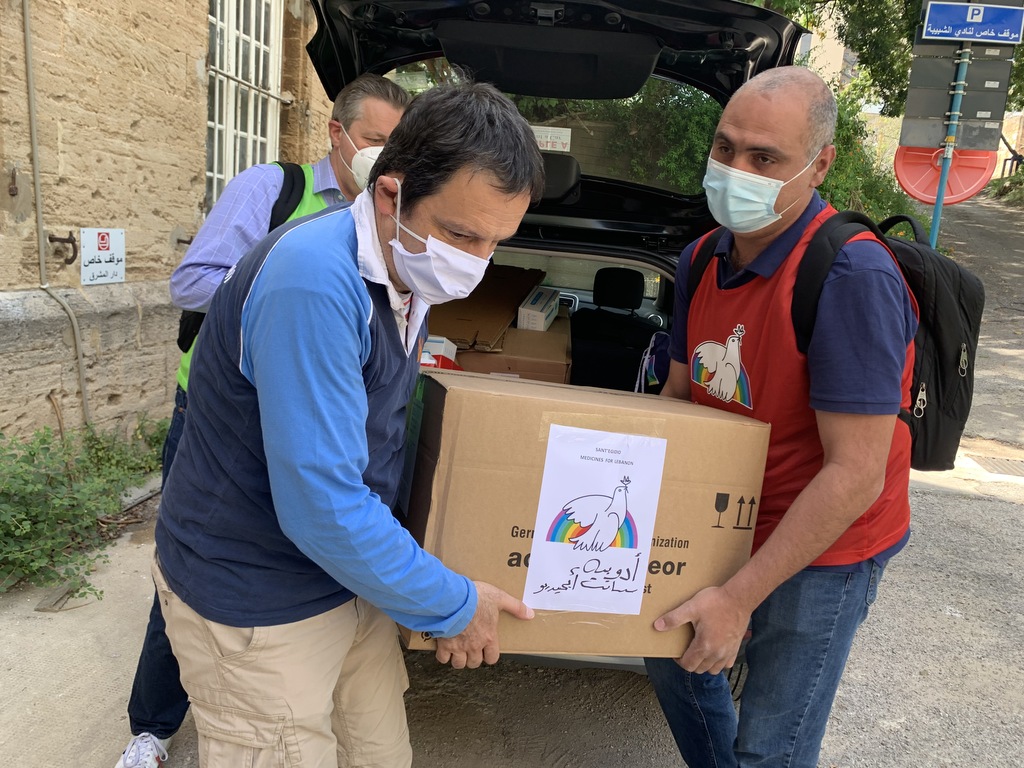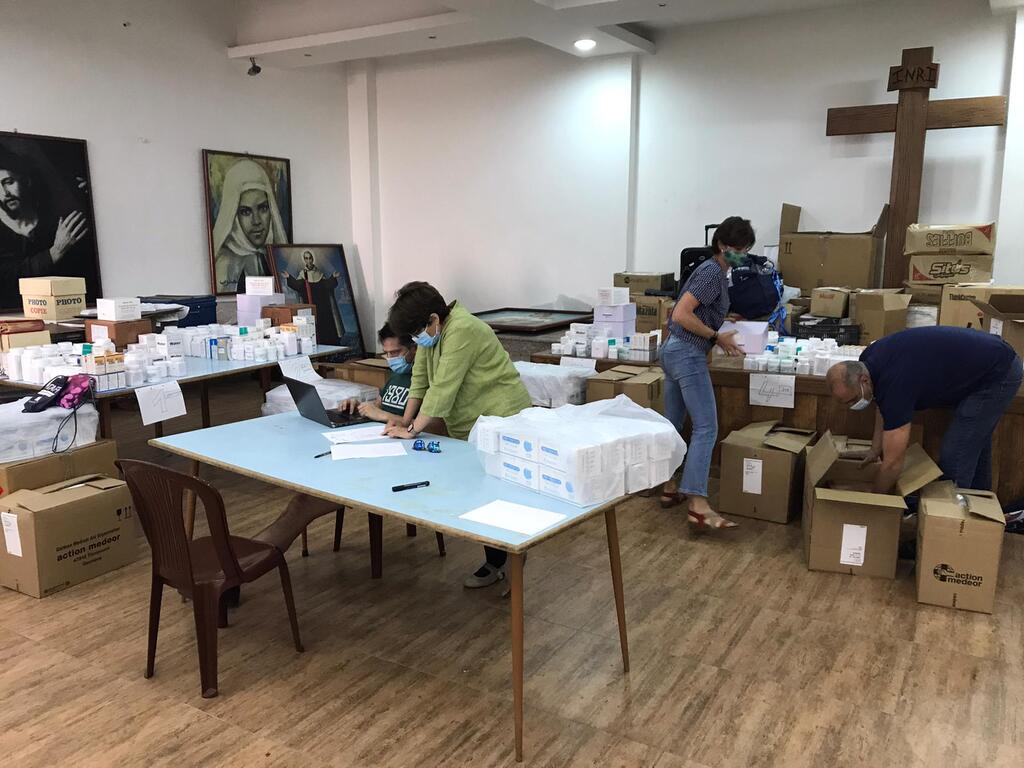In Lebanon, the economic and social situation continues to deteriorate: the local currency, the lira, has lost about 85% of its value against the dollar. The growing devaluation has caused a rise in prices, including those of basic needs, which have increased by about 144%, as well as medicines and basic commodities. Many businesses have been closed down and minimum wages are falling.
The serious economic crisis is also reflected in the healthcare system, which - apart from some public facilities - is private. The government is unable to guarantee medical supplies and regular payment of salaries to doctors and staff in the few public hospitals that exist.
The Covid pandemic - which has a high prevalence far beyond the official figures - is affected by this situation: PCR swabs are charged for and not accessible to the majority of the poor population.
During the food distributions carried out in recent months, we met many elderly people and families who told us about the difficulty of obtaining medicines. The cost of medicines, even essential life-saving ones, has risen, and some - necessary for the treatment of diabetes and heart and vascular diseases - have disappeared from the market. Those who have relatives abroad have a few boxes of medicines sent to them from outside.
We decided to send some medicines that are in daily use in Europe, but cannot be found here.
The Communities of Sant'Egidio in Germany, thanks to the contribution of some donors, offered about 400 kilos of very useful generic medicines for the treatment of the most common diseases among the population: diabetes, hypertension, heart and vascular diseases, antibiotics, pediatric medication. Anti-Covid supplies were also distributed: 20,000 surgical masks and 400 kilos of disinfectant gel packs.
The medicines were entrusted for distribution to eight distribution centers run by religious and local associations in Beirut, in the outlying areas of Burj Hammoud, Qarantina, Carmen Zeitoun, Ain Romanhe and in North Lebanon in Tripoli, Qobayat and Bebnine for the Lebanese population and refugees in the country.
Today's videos















.jpg)
